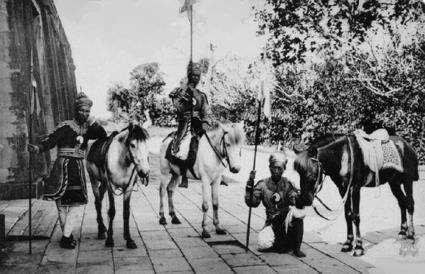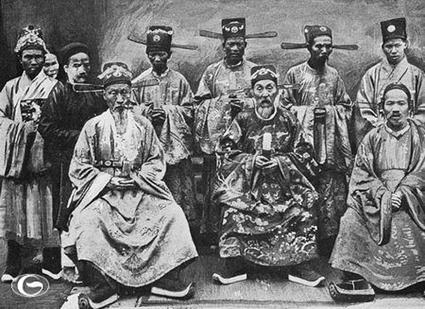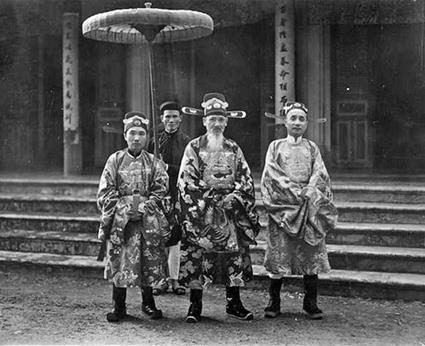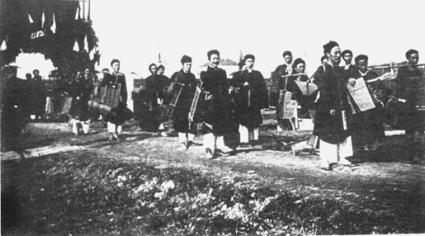On the occasion of the 45thanniversary of President Ho Chi Minh’s Testament (1969 - 2014), VietnamLaw and Legal Forum re-prints the full text of the Testament which wasmade public in 1969, and excerpts of CommuniquéNo. 151-TB/TU of the Political Bureau of theCommunist Party of Vietnam Central Committee, issued on August 19, 1989, on a number of pointsrelated to the Testament.
President Ho Chi Minh’s Testament
DEMOCRATIC REPUBLIC OF VIETNAM
Independence - Freedom - Happiness
Even though our people’s struggle against U.S. aggression for national salvation may have to go through more hardships and sacrifices, we are bound to win total victory.
This is a certainty.
I intend, when that comes, to tour both South and North to congratulate our heroic fellow-countrymen, cadres and combatants, and visit old people and our beloved youth and children.
Then, on behalf of our people, I will go to the fraternal countries of the socialist camp and friendly countries in the whole world and thank them for their whole-hearted support and assistance to our people’s patriotic struggle against U.S. aggression.
Tu Fu, the famous poet of the Tang period in China, wrote: “In all times, few are those who reach the age of seventy.”
This year, being seventy-nine I can already count myself among those “few”; still, my mind has remained perfectly lucid, though my health has somewhat declined in comparison with the last few years. When one has seen more than seventy springs, health deteriorates with one’s growing age. This is no wonder.
But who can say how much longer I shall be able to serve the revolution, the Homeland and the people?
I therefore leave these few lines in anticipation of the day when I shall go and join Karl Marx, V.I. Lenin and other revolutionary elders; this way, our people throughout the country, our comrades in the Party, and our friends in the world will not be taken by surprise.
First about the Party - Thanks to its close unity and total dedication to the working class, the people and the Homeland, our Party has been able, since its founding, to unite, organize and lead our people from success to success in a resolute struggle.
Unity is an extremely precious tradition of our Party and people. All comrades, from the Central Committee down to the cells, must preserve the unity and oneness of mind in the Party as the apple of their eye.
Within the Party, to establish broad democracy and to practice self-criticism and criticism regularly and seriously is the best way to consolidate and develop solidarity and unity. Comradely affection should prevail.
Ours is a party in power. Each Party member, each cadre must be deeply imbued with revolutionary morality, and show industry, thrift, integrity, uprightness, total dedication to the public interest and complete selflessness. Our Party should preserve absolute purity and prove worthy of its role as the leader and very loyal servant of the people.

The Working Youth Union members and our young people ingeneral are good; they are always ready to come forward, fearless ofdifficulties and eager for progress. The Party must foster their revolutionary virtues and train them to be our successors, both “red” and “expert”, in the building of socialism.
The training and education of future revolutionary generations is of great importance and necessity.
Our laboring people,in the plains as in the mountains, have for generation after generationendured hardships, feudal and colonial oppression and exploitation;they have in addition experienced many years of war.
Yet, our people have shown greatheroism, courage, enthusiasm and industriousness. They have alwaysfollowed the Party since it came into being, with unqualified loyalty.
The Party must work out effective plans for economic and cultural development so as to constantly improve the life of our people.
The war of resistance against U.S. aggression may drag on. Our people may have to face new sacrifices of life and property. Whatever happens, we must keep firm our resolve to fight the U.S. aggressors till total victory.
Our mountains will always be, our rivers will always be, our people will always be,
The American invaders defeated, we will rebuild our land ten times more beautiful.
No matter what difficulties and hardships lie ahead, our people are sure of total victory. The U.S. imperialists will certainly have to quit. Our Homeland will certainly be reunified. Our fellow-countrymen in the South and in the North will certainly be re-united under the same roof. We, a small nation, will have earned the signal honor of defeating, through heroic struggle, two big imperialisms - the French and the American, and of making a worthy contribution to the world national liberation movement.
About the world communist movement - Being a man who has devoted his whole life to the revolution, the more proud I am of the growth of the international communist and workers’ movement, the more pained I am by the current discord among the fraternal Parties.
I hope that our Party will do its best to contribute effectively to the restoration of unity among the fraternal Parties on the basis of Marxism-Leninism and proletarian internationalism, in a way which conforms to both reason and sentiment.
I am firmly confident that the fraternal Parties and countries will have to unite again.

About personal matters
-All my life, I have served the Homeland, the revolution and the peoplewith all my heart and strength. If I should now depart from this world, Iwould have nothing to regret, except not being able to serve longer andmore.When I am gone, a grand funeral should be avoided in order not to waste the people’s time and money.
Finally, to the whole people, thewhole Party, the whole army, to my nephews and nieces, the youth andchildren, I leave my boundless love. I also convey my cordial greetings to our comrades and friends, and to the youth and children throughout the world. My ultimate wish is that our entireParty and people, closely joining their efforts, will build a peaceful,reunified, independent, democratic and prosperous Vietnam, and make aworthy contribution to the world revolution.- Hanoi, May 10, 1969 HO CHI MINH CommuniquéNo. 151-TB/TU of August 19, 1989, of the Political Bureau of theCommunist Party of Vietnam Central Committee, on a number of pointsrelated to the Testament and the date of the death of President Ho ChiMinh 1. The original documents related to the text of President Ho Chi Minh’s Testament - In 1965, Uncle Ho wrote hisTestament comprising three pages typewritten by himself and dated May15, 1965, at the end. This was a complete Testament, bearing hissignature, and on the side, that of Comrade Le Duan, First Secretary ofthe Party Central Committee at the time. - In 1968, Uncle Ho wrote a number of complementary passages, covering six hand-written pages. In these pages he re-wrote theintroductory part and the part dealing with “personal matters” in the1965 text, and made several additions. These dealt with the things to bedone after the complete victory of our people’s war of resistance tothe U.S. aggression and for national salvation, such as the efforts torectify the Party, care for the living conditions of people of allstrata, exempt farming cooperatives from agricultural tax for one year,rebuild cities and villages, restore and develop our economy andculture, consolidate national defense, make preparations for nationalreunification. The passage on the rectification of the Party and thecare to be given to war invalids was later crossed, and a vertical linewas drawn on the margin of the passage on national reconstruction,economic and cultural development, and preparations for nationalreunification. - On May 10, 1969, Uncle Ho re-wrote the whole introductory part of his Testament, which filled one hand-written page. - In 1966 and 1967, he wrote no separate pages. 2. On the Testament made public in September 1969 after the death of President Ho Chi Minh The extraordinary meeting of the 3rdCentral Committee of the Party, held on the afternoon of September 3,1969, entrusted the Political Bureau with the responsibility of makingpublic President Ho Chi Minh’s Testament. The text which was made publicwas essentially the one written by Uncle Ho in 1965, in which somepassages were later added to or replaced by others written in 1968 and1969. The text made public was composed of the following parts: - The introductory part:The passage written in 1965 was replaced by that written in 1969. UncleHo’s handwriting related to this passage was photographed and madepublic in full in 1969. - The middle part:It extends from the passage on the Party to that on the world communistmovement inclusive, and was written by Uncle Ho in 1965. - The part on “personal matters”:In the 1965 text, Uncle Ho made recommendations about his eventualfuneral and cremation, and the setting aside of part of the ashes forthe South. In 1968, he re-wrote this passage and recommended that hisashes be put in three ceramic boxes, to be buried in the North, theCenter and the South, respectively. He also added this passage about hislife: “All my life I have servedthe Homeland, the revolution and the people with all my heart andstrength. If I should now depart from this world, I would have nothingto regret, except not being able to serve longer and more.”
- The final part: Extending from the words “Finally, to the whole people, the whole Party, the whole army, to my nephews and nieces, the youth and children, I leave my boundless love…” to the end, this passage was written by Uncle Ho in 1965. No changes or additions were made by him in 1968 and 1969.
In the Testament which was made public, the passages published were taken from the original documents. Changes were made to only one sentence. In 1965, Uncle Ho wrote: “The war of resistance to U.S. aggression may drag on for a few more years”; this was changed to “The war of resistance to U.S. aggression may drag on.”
3. The Political Bureau of the 6th Party Central Committee affirms that the Testament which was made public conforms to the original documents written by President Ho Chi Minh.
- The choice for the publication of the Testament, which Uncle Ho wrote in 1965, was a correct one for this was the only complete text; it bears his signature and that of Comrade Le Duan, then First Secretary of the Party Central Committee, acting as a witness.
- The replacement of the introductory part written in 1965 by that written in 1969 was perfectly agreeable to reason, because 1969 was the year in which Uncle Ho died and the passage he wrote that year had a richer content.
- In the part dealing with “personal matters”, it was found indispensable to add the passage he wrote in 1968 to that written in 1965, so as to reflect better Uncle Ho’s noble and pure life of devotion to the country and people.
The reason why Uncle Ho’s request for his remains to be cremated has so far not been made public is that, taking into account the people’s sentiments and wishes, the Political Bureau of the 3rd Party Central Committee found it necessary to preserve Uncle Ho’s body so that in future, people throughout the country, particularly our compatriots in the South, and our foreign friends can come to pay tribute to him and express their deep feeling for him. That was the reason why we begged to act in a way that was at variance with his recommendation.
- The passages Uncle Ho wrote in 1968 about what was to be done, once the war of resistance against U.S. aggression and for national salvation ended in complete victory, were not made public at the time of Uncle Ho’s death, 1969, because the war of resistance was still raging and final victory had not yet been won. So it was found that the publication of those passages at the time would not be appropriate.
A few lines included words which were later crossed out as if Uncle Ho was still pondering over them and did not yet regard them as definite. We could not be certain what was in his mind. Such lines could not be included in the text of his Testament made public after his death.
- At the time of Uncle Ho’s death, the war of resistance was still being bitterly fought amid great difficulties, hence the Political Bureau decided to alter this sentence: “The war of resistance to U.S. aggression may drag on for a few more years” to “The war of resistance to U.S. aggression may drag on.”
4. On the date of the death of President Ho Chi Minh
President Ho Chi Minh died at 09:47 hours on September 2, 1969, which was National Day. So that the stated day of Uncle Ho’s death did not coincide with a day of great joy for our entire people, the Political Bureau of the 3rd Party Central Committee decided to declare the time of President Ho Chi Minh’s death to be 09:47 hours on September 3, 1969. Now, the Political Bureau of the 6th Party Central Committee deems it necessary to make public the true time of the President’s death.-
(Source: The Gioi Publishers)



